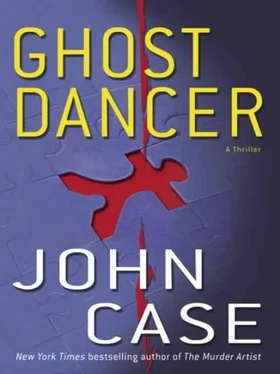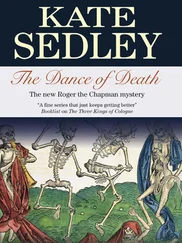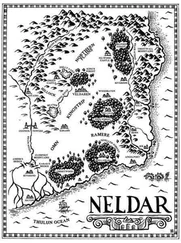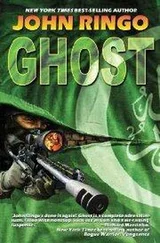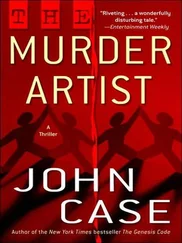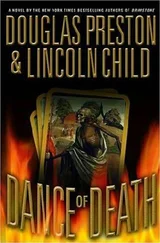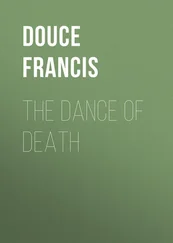To Wilson’s eyes, the hotel had the ambience of a Day’s Inn, but the manager was impressive. Snapping his fingers like castanets, he summoned a posse of elderly bellboys, who hurried over to stand at attention beside each of their bags.
Greeting Belov with a warm handshake and a quiet joke in Russian, the manager waived the formalities of registration. Going over to the desk, he picked half a dozen keys from a rack on the wall, and began handing them out. One to Zero, another to Khalid. A third to Wilson.
On Belov’s advice, they avoided the elevator (which was subject to electrical outages) and followed the bellboys up the stairs to the second floor.
To Wilson’s surprise, the room was fine. Large and comfortably furnished, it had cable TV and a small desk next to the window. Atop the desk was a neatly printed card with instructions on how to access the hotel’s high-speed Internet connection for “only” thirty euros an hour.
He was about to do just that when a wave of fatigue washed over him. Sitting down on the bed, he ran a hand through his hair and thought about taking a shower. That would wake him up. But the mattress was as soft as goosedown could make it, and the hotel quiet as a stone. Lying back on the pillows, he closed his eyes, and listened. The wind was like a bellows, gusting hard, then dying. It threw bits of ice at the windows, making a ticking sound that was barely audible. And then, nothing.
When he awoke, the room was dark. But it wasn’t late. Not really. Rolling out of bed, he crossed the room to the minibar and broke the seal on the door. Inside, he found a couple of bottles of Slavutych Pyvo, which looked like beer.
And was.
Picking up the remote, Wilson snapped on the TV, then flicked through the channels until he found one in English. It was a live feed from Iraq. Half a dozen kids were kicking the shit out of a dead soldier, lying next to a burning Humvee while a mob danced in what looked like a pool of blood. In a voice-over, President Bush counseled the world that democracy was “hard work.”
Wilson snorted.
Meanwhile, images flashed upon the screen. More smoke, this time from a suicide bombing in Kabul. Men running with stretchers. Women and sirens wailing. Nervous soldiers looking on through identical pairs of polarized Oakleys, M-16s at the ready, guns pointing at heaven. Then a trauma ward. A man on the floor, looking as if he were bleeding out, a woman thrashing in pain-
This is nothing, Wilson thought. This is bullshit. If they think this is bad, wait’ll they get a load of me.
The idea made him smile. It’s like an orchestra, he told himself. The mayhem on the tube was the visual equivalent of the noise that an orchestra makes as it gets ready to play, with each of the images corresponding to an instrument being tuned. The cacophony was massive and uncoordinated, a traffic jam of noise and violence. But then – soon – the conductor would tap the podium with his baton, and the first note of every symphony would descend: silence.
Then the storm.
Wilson took a long swig of Slavutych. Duty called. He hadn’t checked his messages since he’d left the ship. He plugged his laptop into the telephone, and waited for the computer to boot up, musing all the while on the idea of himself as a kind of conductor. An artiste! If you listened hard enough, you could almost hear the applause, people shouting Maestro! Maestro!
He clicked on the Internet Explorer icon, went to my.yahoo.com and signed in. Clicked on Mail, clicked on Draft – and there it was, a single note dated two days earlier, the address line left blank:
I can’t find Hakim.
TIRASPOL-SHARJAH
The Antonov rumbled down the tarmac, flaps at attention, the plane shaking and shuddering, roaring toward liftoff. A wall of pine trees loomed behind the fences, growing taller and taller and then they were gone. The plane’s vibrations faded to a pulsed thrum as Tiraspol dwindled beneath the wings, a toy slum in a wintry landscape.
Sitting in the cockpit with Belov, the pilot, and the engineer, Wilson relaxed as the plane banked to the south. The Russian lighted a cigar, puffed mightily, and cocked his head toward the engine on the port wing. “Exhaust! You see?”
Wilson glanced out the window, where a stream of turbulence poured over the wing. “What about it?”
Belov made a graceful gesture with his hand, creating a sine wave in the air. “Russian genius puts engine on top, not under wing – so makes possible short takeoffs. Also, landings! Crappy fields, this is no problem. In Africa, I’m using grass airstrips, always. So… is big deal. Normal plane, no way.”
“What’s the trade-off?” Wilson asked.
Belov shrugged. “Not-so-big plane. If I have Antonov-twelve, I haul twenty tons – not ten!” He waggled a finger in the air. “But then I need good runway, mile long, plus.”
Wilson looked out the window. As the plane climbed, he could see the engine on the left side of the plane. It was sitting on the leading edge of the wing, and he could see the exhaust flowing over the ailerons.
“Okay if I go back – check out my friends?”
“Sure! Is okay!” Belov said. “But no cooking!”
Wilson stared at him. “What?”
“No cooking! What you don’t understand?”
“You’re kidding.”
Belov shook his head. “Look at floor! Sometimes Arab peoples, they think because it’s metal, no problem! I’m telling you, they don’t know shit. So you tell them: no cooking.”
“I will.”
“Good.”
Unbuckling his seat belt, Wilson got to his feet. Through the window, he could see the Black Sea stretching toward the horizon. “How long to Sharjah?” he asked.
“Five hours,” Belov told him. “Maybe six.”
The pilot turned to him. “Sometimes, we have problems in Iraqi airspace.”
“What kind of problems?” Wilson asked.
“F-16s.”
Leaving the cockpit, Wilson walked back to where Zero and Khalid were seated on folding metal chairs, bolted into the side of the fuselage. They were smoking cigarettes, and each of them had a Diadora bag in his lap. On the floor in front of them was a dull black scar where someone had tried to cook dinner.
Wilson glanced around.
“Everything okay?”
Khalid chuckled. “He’s scared shitless,” he said, nodding at Zero.
“Well…” Wilson paused. “Lemme ask you something.”
Khalid’s eyebrows shot up, as if to say, Shoot.
“You make any calls last night?”
Khalid frowned. “No,” he said. “I call no one. Him, too! No calls.”
“What about the Internet?” Wilson asked.
The plane hit an air pocket, and Zero turned white.
Khalid’s frown deepened, then softened into embarrassment. He was thinking that Wilson was upset about the hotel bill. So he blamed his friend. “Yeah,” he said, confessing on Zero’s behalf. “He goes on pussy dot com, when I’m in the shower, y’know? Five minutes, maybe ten, I’m in the shower. When I get out, I see what he does, I make him get off.”
“No problem.”
“Maybe fifteen minutes-”
“Don’t worry about it,” Wilson told him. “What I wanted to know was, you hear from Hakim? You get any e-mail from him?”
Khalid shook his head, looking relieved. “No,” he said. “We don’t get nothing from Hakim.”
They touched down in Sharjah a little after three.
Exiting the plane was like leaving a theater in midafternoon. A wall of heat fell on them, and the sky went off like a flare. Wilson fumbled for his sunglasses, squinting so tightly he might as well have been blind. Pools of oil, real or imagined, glittered on the tarmac. In the distance, a cluster of bone-white buildings shimmered in the molten air.
Читать дальше
